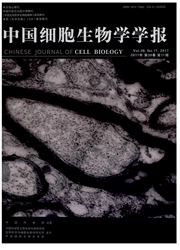

 中文摘要:
中文摘要:
分离新生Wistar鼠海马,采用添加B27的无血清培养液进行海马神经元原代培养,动态观察海马神经元形态学变化;通过免疫荧光细胞化学法检测神经纤丝(m的表达,进行神经元鉴定及纯度计算:采用电位敏感的荧光探针标记神经元,在激光扫描共聚焦显微镜上动态监测去极化剂KC1作用前后膜电位的变化,观察神经元电生理反应。结果表明:此方法培养的大鼠海马神经元可在体外存活20天以上,9~14天为发育最成熟阶段,培养7天神经元纯度达90%。KC1作用于细胞后胞内荧光强度增强,细胞迅速去极化。本培养方法在体外获得高纯度的海马神经元并延长体外存活时间,且显示出神经元的电生理反应特性。
 英文摘要:
英文摘要:
Hippocampal neurons of neonatal Wistar rats were isolated and cultured in the serum-free B27 supplemented culture media. The process of hippocampal neurons growth was observed. Neurofilament (NF) was detected by immunofluorescence staining to identify neurons and to calculate the purity of neurons. Hippocampal neurons were labelled with voltage-sensitive fluorescent dye to monitor the effect of KC1 on membrane potential of neurons by laser scanning confocal microscopy. In this study the fostered hippocampal neurons could survive over 20 days and develop completely mature from the 9th to 14th day in vitro. At the 7th day the purity of neurons reached 90%. And the depolarization of cells could be induced by KC1. It is suggested that the survival rate and purity of hippocampal neurons are high using this culture method. And the cultured hippocampal neurons have electrophysiological properties.
 同期刊论文项目
同期刊论文项目
 同项目期刊论文
同项目期刊论文
 期刊信息
期刊信息
